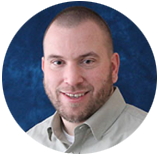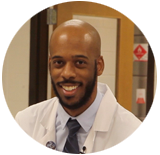
Matt Oney (WWTF ’12)
BIOGRAPHY
Matt Oney is the director of the Escanaba Student Success Center, an alternative school in Michigan’s rural Upper Peninsula. Prior to his role as director, Matt was a science teacher and 2012 Woodrow Wilson Michigan Teaching Fellow. He spent his years teaching, developing, and implementing inquiry-based curricula centered in modeling instruction. He was a governor appointee to Michigan’s 21st Century Education Commission, which was charged with developing plans to improve Michigan’s entire education system. Matt has been successful in raising funds for his classroom that have allowed him to explore the integration of various types of technologies in his classroom instruction. Many of these technologies have been instrumental in his transition to online instruction.
SCHOOL PROFILE
- Small school
- Rural
- Alternative and traditional public school
- Enrolled students: 70 at alternative school; 700 at traditional school
- Free/Reduced lunch Eligible: 35%
- Demographics: 95% White
SESSION ABSTRACT
Next Generation Science Standards, 3-dimensional teaching, and inquiry-based learning have revolutionized science instruction. However, this method of science instruction is difficult and requires large amounts of planning and practice when face-to-face. With our current modality of teaching online, inquiry-based teaching and learning becomes even more difficult. In this session, Matt will share his experience in developing, implementing, and facilitating inquiry driven lessons from a distance. In addition, Matt will highlight many of the technologies that have eased the transition to online teaching.




